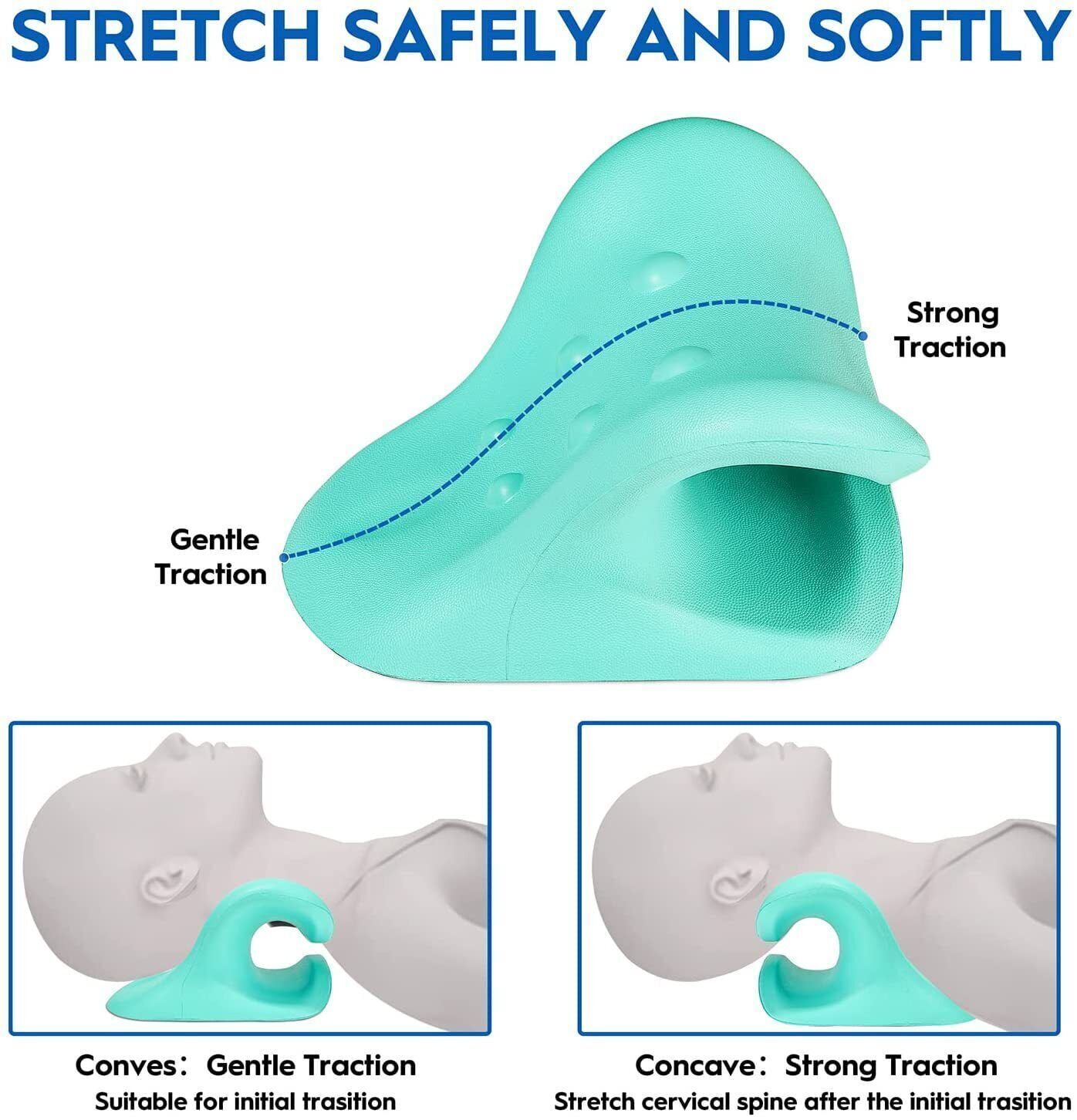Neck Cloud: Innovative Assistance for Pain Alleviation and Better Position
Neck Cloud: Innovative Assistance for Pain Alleviation and Better Position
Blog Article
The Influence of Stress And Anxiety on Neck Discomfort: Techniques for Decreasing Tension and Discomfort
In today's busy globe, it's obvious that stress has come to be a widespread consider the beginning and exacerbation of neck discomfort. The complex connection in between stress and muscle mass stress commonly leaves individuals seeking remedy for the pain that occurs. By checking out targeted strategies aimed at lowering stress and advertising relaxation, one can start to address the source of neck discomfort and work in the direction of a much more balanced state of wellness. Join us on a trip to unravel the impact of tension on neck discomfort and find efficient ways to relieve discomfort and improve general lifestyle.
Recognizing Stress-Related Neck Pain
Neck pain is a common grievance that can commonly be credited to stress and anxiety. Stress-related neck discomfort can materialize as tension, tightness, or discomfort in the neck and shoulder area. The link between stress and anxiety and neck pain exists in the body's physical feedback to tension, which can lead to muscle mass stress and rigidity in the neck muscles. Persistent tension can lead to consistent neck pain and aggravate status quo like cervical spondylosis or muscle mass pressures.

Identifying Common Tension Locations
Regularly experienced by people under anxiety, tension areas in the body can give beneficial understandings into the physical indications of emotional strain. One common tension location is the neck, where stress and anxiety commonly manifests physically. Stress headaches, rigid neck muscles, and limited variety of activity are typical signs of stress-related neck stress. The shoulders are another typical location where stress gathers. Stress and anxiety can cause the muscles in the shoulders to tighten, causing pain and discomfort. Additionally, the upper back is susceptible to stress accumulation, particularly in individuals that experience chronic tension. Poor pose and extended sitting can exacerbate stress around. The jaw is additionally a common place for stress-related stress, as lots of individuals squeeze their jaw or grind their teeth when worried. Understanding these usual stress locations can aid people acknowledge the physical indicators of tension and take steps to resolve them prior to they intensify right into persistent discomfort or pain.
Carrying Out Relaxation Strategies
To efficiently take care of stress-related tension in Full Report the body, applying leisure techniques is vital. Relaxation strategies are useful tools for decreasing neck discomfort brought on by stress and anxiety. Deep breathing workouts can assist relax the mind and loosen up strained muscle mass in the neck and shoulders (neck cloud). Exercising mindfulness meditation can additionally be valuable in minimizing anxiety and promoting leisure. Progressive muscle mass relaxation, where you methodically tense and after that relax different muscular tissue teams, can release built-up stress in official site the neck area. Furthermore, tasks like yoga exercise and tai chi integrate both physical motion and relaxation, making them effective techniques for decreasing tension and neck discomfort. Taking regular breaks throughout the day to stretch and take a break can prevent muscle mass stiffness and stress from collecting. By incorporating these relaxation methods into your daily routine, you can aid manage stress and anxiety degrees, lower stress in the neck, and reduce discomfort connected with stress-induced neck discomfort.
Integrating Self-Care Practices
Incorporating self-care methods is important for maintaining overall well-being and managing stress-related neck discomfort successfully. Involving in routine exercise, such as mild stretching workouts or yoga, can aid minimize tension in the neck and shoulders. Exercising great pose throughout the day and taking frequent breaks from extended resting or display time can additionally protect against strain on the neck muscles.
In addition, prioritizing sufficient sleep and developing a regular sleep routine can add significantly to decreasing anxiety degrees and promoting relaxation. Creating a soothing bedtime routine, such as reviewing a book or taking a warm bathroom, can assist prepare the body and mind for relaxing sleep. Additionally, keeping a well balanced diet plan abundant in nutrients and remaining moisturized can sustain overall health and wellness and minimize swelling that may exacerbate neck discomfort.
Integrating mindfulness methods, such as deep breathing workouts or reflection, can aid handle stress and anxiety and promote leisure. Requiring time for oneself, engaging in leisure activities, and establishing limits to secure individual time are likewise vital aspects of self-care that can add to reducing stress and anxiety and relieving neck pain.
Seeking Specialist Assistance
Just how can individuals effectively resolve relentless neck pain that is affecting their every day websites life and well-being? Looking for expert help can be an essential action in handling and alleviating neck discomfort. Consulting with health care experts such as chiropractic specialists, physiotherapists, or orthopedic specialists can offer useful insights and tailored treatment plans. These experts can perform comprehensive evaluations to diagnose the underlying root causes of neck pain and suggest ideal treatments.
Chiropractics physician concentrate on spinal adjustment strategies to improve alignment and minimize tension in the neck area. Physical therapists supply targeted workouts and stretches to reinforce muscle mass, improve adaptability, and improve overall neck function. Orthopedic professionals can offer sophisticated clinical treatments such as injections or surgical options for extreme situations of neck pain.
Conclusion

Stress-related neck pain can manifest as tension, rigidity, or discomfort in the neck and shoulder location. The connection in between anxiety and neck discomfort exists in the body's physical reaction to tension, which can result in muscle tension and rigidity in the neck muscular tissues. Stress migraines, stiff neck muscular tissues, and limited variety of motion are common signs and symptoms of stress-related neck stress. By incorporating these relaxation techniques into your daily regimen, you can help handle tension levels, decrease tension in the neck, and alleviate discomfort connected with stress-induced neck discomfort.

Report this page